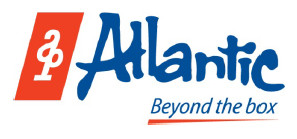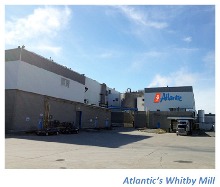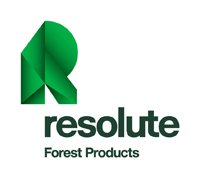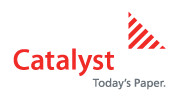Ianadmin
Jens Pohl Appointed as Head of Voith Engineering Services
Effective from January 1, 2013, Voith Engineering Services will see a new business executive: Jens Pohl will be taking over the lead of Voith Engineering Services in the Group Division Voith Industrial Services.
 The 45-year-old mechanical engineer comes from the engineering services provider MBtech. There he served as member of management for sales, marketing and purchasing and was also responsible for the worldwide subsidiaries. Pohl started his career in 1994 at the former Mercedes-Benz AG, now Daimler AG, where he performed various operative and strategic international management tasks in the passenger car division, at the group headquarters, and in its affiliates.
The 45-year-old mechanical engineer comes from the engineering services provider MBtech. There he served as member of management for sales, marketing and purchasing and was also responsible for the worldwide subsidiaries. Pohl started his career in 1994 at the former Mercedes-Benz AG, now Daimler AG, where he performed various operative and strategic international management tasks in the passenger car division, at the group headquarters, and in its affiliates.
Jens Pohl brings along comprehensive international expertise in the automotive industry and a wide-ranging knowledge of the aerospace and other high-tech branches. At Voith, he will be responsible for the Engineering Services in the sectors Aerospace, Road and Rail. In this function he will succeed Thomas Mauthe who will be leaving Voith at the end of the year.
Tembec reports financial results for its fourth quarter ended September 29, 2012
Consolidated sales for the three-month period ended September 29, 2012, were $443 million, as compared to $421 million in the comparable period of the prior year. The Company generated a net loss of $47 million or $0.47 per share in the September 2012 quarter compared to a net loss of $17 million or $0.17 per share in the September 2011 quarter. The most recent quarter results include a non-cash asset impairment charge of $50 million relating to the recently idled Chetwynd, British Columbia, pulp mill. Operating earnings before depreciation, amortization and other items (adjusted EBITDA) was $23 million for the three-month period ended September 29, 2012, as compared to adjusted EBITDA of $19 million a year ago and adjusted EBITDA of $27 million in the prior quarter.
For the fiscal year ended September 29, 2012, consolidated sales were $1.7 billion, unchanged from the prior year. The Company generated a net loss of $82 million or $0.82 per share compared to a net loss of $5 million or $0.05 per share in fiscal 2011. Adjusted EBITDA was $64 million compared to $98 million in the prior year.
Transition to IFRS
All financial information in this press release, including comparative figures pertaining to Tembec’s fiscal 2011 quarterly results, have been prepared in accordance with International Financial Reporting Standards (IFRS).
Business Segment Results
The Specialty Cellulose and Chemical Pulp segment generated adjusted EBITDA of $16 million on sales of $167 million for the quarter ended September 29, 2012, compared to adjusted EBITDA of $18 million on sales of $167 million in the prior quarter. Sales were relatively unchanged with lower prices offset by higher shipments. US dollar and euro prices for specialty grades and commodity viscose grades were relatively unchanged quarter-over-quarter. However, with the Canadian dollar strengthening by 1.2% versus the US dollar and by 4.0% versus the euro, Canadian dollar equivalent pricing declined by $4 million or $60 per tonne sold.
The specialty cellulose market conditions remained favourable. Specialty cellulose shipments were equal to 84% of capacity as compared to 80% in the prior quarter. The relatively low level of shipments in the June 2012 quarter was due to the annual maintenance shutdown at the Tartas mill, which lasted 11 days. A shorter four day planned maintenance outage also occurred at the Temiscaming facility. During the most recent quarter, the two specialty pulp mills had only 3.5 days of scheduled maintenance, including one day at the Tartas mill. The higher productivity at the latter facility reduced mill level cash costs, including the positive impact of the weaker euro, by $10 million. Overall, the two pulp mills generated $7 million more of adjusted EBITDA than in the prior quarter.
The market conditions for Northern Bleached Softwood Kraft (NBSK) pulp remained relatively weak. The benchmark price (delivered China) decreased by US $60 per tonne. Overall, realized Canadian dollar prices decreased by $50 per tonne, reducing adjusted EBITDA by $3 million. NBSK shipments were equal to 89% of capacity as compared to 91% in the prior quarter. During the most recent quarter, the Skookumchuck pulp mill proceeded with its planned annual maintenance shutdown, which lasted seven days. As a result, mill level costs increased by $7 million. Overall, adjusted EBITDA declined by $11 million.
The Paper segment generated adjusted EBITDA of $14 million on sales of $96 million for the quarter ended September 2012, compared to adjusted EBITDA of $9 million on sales of $86 million in the prior quarter. Higher coated bleached board and newsprint shipments caused the $10 million increase in sales. In terms of markets, coated bleached board was stable. Newsprint also remained stable despite continued weaker North American demand statistics. The US $ reference prices for coated bleached board declined by US $13 per short ton while the US $ reference price for newsprint was unchanged. Currency was slightly negative as the Canadian dollar averaged US $1.003, a 1.2% increase from US $0.991 in the prior quarter. The combined effect was a decrease of $3 million of adjusted EBITDA due to price. Coated bleached board shipments were equal to 111% of capacity as compared to 96% in the prior quarter. The shipment to capacity percentage for newsprint was 103%, compared to 87% in the prior quarter. Both mills saw improved productivity and also sold from inventory. The improved productivity led to a reduction in mill level costs of $5 million, primarily for energy and fixed cost absorption. The higher sales volume also led to higher adjusted EBITDA.
The High-Yield Pulp segment generated negative adjusted EBITDA of $9 million on sales of $100 million for the quarter ended September 29, 2012, compared to adjusted EBITDA of $5 million on sales of $101 million in the prior quarter. Market conditions for high-yield pulp remained weak in the most recent quarter. The US $ reference price for bleached eucalyptus kraft (BEK) decreased over the prior quarter by US $32 per tonne. When combined with a higher sales mix factor, high-yield pulp prices declined by $5 per tonne, reducing adjusted EBITDA by $1 million. High-yield pulp shipments were equal to 91% of capacity as compared to 89% in the prior quarter. During the most recent quarter, weak market conditions led to a production curtailment at the Chetwynd pulp mill for the last 30 days of the fiscal quarter. The mill remains indefinitely idled at time of writing and the Company has incurred a $50 million asset impairment charge to reduce the carrying values of the mill assets to estimated net recoverable amounts. The reduced productivity increased mill costs by $2 million over the prior quarter. In the September 2012 quarter, the lower selling prices led to a decrease of $3 million in the carrying values of finished goods and raw material inventories, decreasing adjusted EBITDA. This is the opposite of what occurred in the prior quarter when increased selling prices had led to an $8 million increase in the carrying values of finished goods and raw materials.
The Forest Products segment generated adjusted EBITDA of $8 million on sales of $108 million for the quarter ended September 29, 2012, compared to negative adjusted EBITDA of $2 million on sales of $86 million in the prior quarter. Sales increased by $22 million due primarily to higher shipments of lumber and sawmill by-products. Demand for SPF lumber improved with shipments equal to 70% of capacity, as compared to 59% in the prior quarter. US $ reference prices for random lumber increased by US $8 per mbf on average while stud lumber increased by US $7 per mbf. When combined with a higher sales mix factor, the net price effect was an increase in adjusted EBITDA of $3 million or $15 per mbf. Mill level manufacturing costs improved by $5 million. Costs are normally lower in the summer months and the sawmills also benefited from more continuous operations in the most recent quarter.
Outlook
Overall, the September 2012 quarterly results were in line with expectations, with improving lumber profitability offsetting the negative impact of difficult paper pulp markets. The Forest Products segment had its best quarter in several years, both in terms of lumber demand and prices. The summer months are also seasonally more productive and lower cost as well. Looking ahead, the normal seasonal decline in prices is anticipated in the December quarter. While the recent housing statistics in the United States are encouraging, we continue to forecast a slow and gradual recovery in housing, with lumber demand and prices following a similar pattern. The Specialty Cellulose and Chemical Pulp segment results were negatively impacted by currency as the Canadian dollar strengthened versus the US dollar and the euro. Market conditions for specialty cellulose were stable while those for NBSK pulp were very weak, with US $ pricing reaching “trough” levels. The annual mill-wide maintenance outage at the Skookumchuck pulp mill, which is the Company’s most expensive outage, also impacted the segment’s quarterly results. We anticipate a stable market for specialty and viscose pulps in the coming quarters. There are price increases announced for NBSK and they should be implemented. The adjusted EBITDA decline in the High-Yield Pulp segment was somewhat distorted by inventory adjustments. The prior quarter had benefited from an $8 million favourable adjustment to net realizable value inventory reserves as compared to a $3 million unfavourable adjustment in the September 2012 quarter. Absent the aforementioned adjustments, the decline in profitability was relatively modest and in line with expectations. Lower prices and the additional costs of idling the 240,000 tonnes per year Chetwynd, BC, mill led to the decline in High-Yield Pulp segment profitability. While price increases are being implemented, we expect market conditions for high-yield pulp to remain relatively weak. As well, future profitability will be enhanced as the Company will be operating its two lowest cost facilities going forward. The Paper segment had improved results due to good productivity and higher shipments. Stable paper markets are anticipated. However, profitability will be lower as the September 2012 quarter level of shipments is not sustainable. The Company continues with its capital expenditure program, with a strong emphasis on its two specialty cellulose mills. The cornerstone of the program is a $190 million high-pressure boiler and turbine to be installed at the Temiscaming, Quebec, site. The project will materially improve the mill’s cost structure and margins. A total of $59 million has been spent on the Temiscaming specialty cellulose project to the end of the September 2012 quarter. The Company also has several other smaller capital projects, which are either in start-up mode or nearing completion. These projects will begin to positively impact adjusted EBITDA in the coming quarters.
The Global Forest Industry Q3 review
The Global Sawlog Price Index (GSPI) fell for the fifth consecutive quarter to $81.94/m3.
The Softwood Wood Fiber Price Index (SFPI), which is based in US dollars, was down another 0.5 percent from the 2Q/12 to US$100.05/odmt. Hardwood Wood Fiber Price Index (HFPI) increased by $1.56/odmt from the 2Q/12 price to $106.44/odmt in the 3Q/12.
Softwood pulp (NBSK) prices have trended downward for more than a year from their record highs in the summer of 2011. Hardwood pulp (BHKP) prices have not experienced the same price fall as NBSK prices.
Despite the weakening markets for lumber, six of the ten largest lumber-exporting countries in the world have shipped more lumber this year than last year.
North American lumber production rose for the third straight quarter in the 3Q/12.
The importation of softwood lumber to China in September was down for the fourth consecutive month to 1.14 million m3, a decline of 14 % from September 2011.
Pellet exports from the US South to Europe rose 13 % in the 2Q/12 from the previous quarter; almost a doubling in one year.
Atlantic Packaging Announces Plans to Open First High Performance Lightweight Recycled Paper Mill
 Atlantic Packaging Products announced today, plans to re-open their Whitby Ontario Mill in March of 2013. The former newsprint mill has been upgraded with technology that will allow Atlantic Packaging to produce 100% recycled lightweight paper used to manufacture high performance corrugated packaging products.
Atlantic Packaging Products announced today, plans to re-open their Whitby Ontario Mill in March of 2013. The former newsprint mill has been upgraded with technology that will allow Atlantic Packaging to produce 100% recycled lightweight paper used to manufacture high performance corrugated packaging products.
 Recycled lightweight paper has been around in Europe for many years. The paper is made using less fiber and is enhanced for strength. The result is a much lighter, stronger and more sustainable product. President of Atlantic Packaging, Dave Boles adds “In North America, the term lightweight has been primarily used in reference to the basis weight of the paper, with little or no emphasis on strength. What we’re talking about is a disruptive technology that is capable of producing low basis weights (lighter paper) with sustainability and strength characteristics unlike anything in corrugated packaging today.” Dave continued, “Sustainability objectives from large retailers are driving the industry forward, and soon Atlantic will be in a position to provide our customers with the most sustainable corrugated packaging option available in North America.”
Recycled lightweight paper has been around in Europe for many years. The paper is made using less fiber and is enhanced for strength. The result is a much lighter, stronger and more sustainable product. President of Atlantic Packaging, Dave Boles adds “In North America, the term lightweight has been primarily used in reference to the basis weight of the paper, with little or no emphasis on strength. What we’re talking about is a disruptive technology that is capable of producing low basis weights (lighter paper) with sustainability and strength characteristics unlike anything in corrugated packaging today.” Dave continued, “Sustainability objectives from large retailers are driving the industry forward, and soon Atlantic will be in a position to provide our customers with the most sustainable corrugated packaging option available in North America.”
The Whitby Mill is the 2nd Atlantic paper mill to open in the last 6 years. In 2006 Atlantic opened the New Forest Mill as part of a joint venture with Mitchel-Lincoln, the leading corrugated packaging company in the province of Quebec.
Source: Altantic Packaging Products
Ahlstrom launches Coralpack NG, a PFOA-free* flexible packaging paper for greasy food products
![]() Ahlstrom, a global high performance fiber-based materials company, has developed a PFOA-free* version of its Ahlstrom Coralpack range, a flexible packaging paper for direct wrapping and packing of numerous grease-containing food products, such as biscuits, pastries, coffee beans, fast food, take-away food, pizzas, popcorn for micro wave, butter & margarine, soup cubes and many more.
Ahlstrom, a global high performance fiber-based materials company, has developed a PFOA-free* version of its Ahlstrom Coralpack range, a flexible packaging paper for direct wrapping and packing of numerous grease-containing food products, such as biscuits, pastries, coffee beans, fast food, take-away food, pizzas, popcorn for micro wave, butter & margarine, soup cubes and many more.
To produce grease resistant packaging papers, fluorochemicals are added in the paper production process. However, deriving from the production process of these fluorochemicals, trace amounts of PFOA can be found as an unintended impurity. In January 2006, the US Environmental Protection Agency (EPA) invited manufacturers of fluorochemicals to commit to reduce by 95% PFOA from their emissions and products content not later than by 2010 and to eliminate it totally by 2015.
To offer its customers a grease resistant paper free of this unintended impurity, Ahlstrom Group Product & Technology Development services have designed a new generation of grease resistant papers.
Today, the entire Ahlstrom Coralpack paper range is available on request in a New Generation (NG) version, free of PFOA*. The product's paper range spans from 32 to 200 grams per square meter and offers high performance paper characteristics such as printability, laminating, extrusion and crimping. Ahlstrom Coralpack is produced at the Rottersac plant South-West of France. Whatever their grease contents, food products packed or wrapped in Ahlstrom Coralpack papers are always free of grease stains, which positively impacts the image of different brands in consumer minds. This environmentally-friendly product improvement is another Ahlstrom contribution to make its customers stay ahead in their markets.
* Does not contain Perfluorooctanoic acid (PFOA) (below current detection limits of 20 ppb), cannot release PFOA or any PFOA precursor.
Resolute Forest Products Announces Indefinite Idling of Kraft Mill and Paper Machine in Fort Frances
 Resolute Forest Products on the 20th November has announced the indefinite idling of the kraft mill and paper machine number 5 (PM5) at its pulp and paper operation in Fort Frances, Ontario. The kraft mill has an annual production capacity of approximately 200,000 metric tons of market pulp, while PM5 has an annual capacity of 105,000 metric tons of groundwood specialty printing papers.
Resolute Forest Products on the 20th November has announced the indefinite idling of the kraft mill and paper machine number 5 (PM5) at its pulp and paper operation in Fort Frances, Ontario. The kraft mill has an annual production capacity of approximately 200,000 metric tons of market pulp, while PM5 has an annual capacity of 105,000 metric tons of groundwood specialty printing papers.
"The markets for these products are challenging and are expected to remain so. The kraft mill situation is particularly difficult given Fort Frances' operating configuration and the recent decision by a key customer to stop consuming the pulp supplied by Resolute to its mill," said Resolute's President and Chief Executive Officer, Richard Garneau. "Our kraft mill's drying capacity is limited to about 40 percent of its production capacity, making it impossible to continue operating the mill in a profitable manner."
Resolute is exploring alternative product possibilities for its Fort Frances pulp mill, which will be idled in a manner that will protect the equipment.
The idling of PM5 is driven by the decrease in consumption as well as the high value of the Canadian dollar.
"We will monitor market conditions closely and work with key stakeholders to explore ways to improve the mill's cost position," added Garneau.
The running down of fiber inventories and orderly shutdown of the Fort Frances kraft mill is expected to be completed by late November. PM5 will also continue to operate until late November. Approximately 239 employees will be impacted by the idling.
Resolute Forest Products will work with affected employees, all levels of government and other local authorities on programs to lessen the impact of the idling. Resolute employees affected by this idling will also be considered for job vacancies and opportunities at other Company facilities. In all cases, employees will be treated in accordance with the applicable collective agreements and Provincial legislation.
SOURCE: RESOLUTE FOREST PRODUCTS INC.
Palm paper planning application for CHP
Palm Paper King’s Lynn mill began production of newsprint grades in August 2009 and in July 2012 King’s Lynn PM7 machine produced the one millionth tonne. With production ahead of forecast levels Palm Paper seeks to reduce its dependency on the use of imported energy and has now committed to bringing further inward investment to the King’s Lynn area, through the development of a proposed Combined Heat and Power (CHP) plant in an environmentally acceptable and sustainable manner.
Combined Heat and Power, is the process whereby a power generating plant supplies heat, in the form of steam or hot water to another user. A CHP plant achieves a higher overall thermal efficiency compared with power generation alone.
Palm Paper is in consultation with King’s Lynn & West Norfolk Borough Council regarding this installation and is awaiting a Scoping opinion from the Planning Inspectorate.
The proposed development is to construct and operate a Combined Cycle Gas Turbine (CCGT) Power Station to be known as Palm Paper 3 CCGT. The new CCGT will burn natural gas exclusively and with efficiency above 84%, it will be extremely energy efficient in providing electricity and steam for the paper mill.
The location of Palm Paper 3 CCGT will be within the boundary of Palm Paper King’s Lynn mill site. The fuel will be Natural Gas to generate 55 – 65 MW of Electricity and 100 tonnes of steam (high & low pressure) per hour.
The next steps are Palm Paper is due to receive a Scoping Opinion from the Planning Inspectorate by mid-October.
Consultation with the public could therefore start mid-October. At the same time, between mid-October and mid-November, consultation with Local Community and Authorities, Statutory Bodies will take place, these being King’s Lynn Borough Council, EA, Natural England, Regional Planning Bodies, Health and Safety Exec and other interested parties.
Based on the Scoping Opinion and results from the consultation, an Environmental Statement will be prepared in December.
CheckSecur Platinum Enviro™ wins PPI Award for Innovative Product of the Year!
 Cascades has once again garnered a coveted Pulp & Paper International (PPI) Award. This time, with its newest product innovation, an environmentally friendly security paper made with 100% post-consumer fiber: CheckSecur Platinum Enviro™. Customers can now reach their environmental objectives while being protected against the most sophisticated forms of fraud.
Cascades has once again garnered a coveted Pulp & Paper International (PPI) Award. This time, with its newest product innovation, an environmentally friendly security paper made with 100% post-consumer fiber: CheckSecur Platinum Enviro™. Customers can now reach their environmental objectives while being protected against the most sophisticated forms of fraud.
The technology of using post-consumer fibers to produce secure documents was almost nonexistent. As customers were seeking additional environmental attributes for their security papers, Cascades' innovation took on the challenge – and prevailed. Drawing on 45 years of recovery and de-inking expertise along with extensive R&D, Cascades manufactured a unique UV dull pulp made with 100% post-consumer fiber. Strong partnerships with our customers allowed us to test the new paper on different press technologies, a crucial step before going to market.
CheckSecurPlatinumEnviro™ maintains all the advanced security features of traditional virgin fiber papers, including a multi-tone watermark, yellow-fluorescent invisible fibers and blue-visible fibers, chemical reactive treatment, SecurLaserPlusTM technology and MICR-OCR compatibility. Environmentally speaking, using 10,000 CheckSecurPlatinumEnviro™ checks rather than its virgin equivalent saves: 1 tree, 993 gal. of water, 326 lb. of air emissions and 125 lb. of solid waste. Impressive numbers for a premium security paper.
“As a leader in sustainable development, it was only natural for Cascades to innovate towards a more sustainable solution. CheckSecurPlatinumEnviro™ differentiates us from the competition and addresses a long-standing market need for environmentally friendly products, without compromising document security.” – Normand Champagne, General Manager, Security Papers, Cascades Fine Papers Group.
Cascades Receives 2012 Green Supply Chain Award
 Cascades is the proud recipient of a 2012 Green Supply Chain Award for its sustainable approach to its supply chain. It will be listed along with other award winners in the December issue of the American magazine Supply & Demand Chain Executive, specialists in the supply chain sector for over 10 years.
Cascades is the proud recipient of a 2012 Green Supply Chain Award for its sustainable approach to its supply chain. It will be listed along with other award winners in the December issue of the American magazine Supply & Demand Chain Executive, specialists in the supply chain sector for over 10 years.
The Green Supply Chain Award recognizes companies who make sustainability a core part of their supply chain strategy, and work to achieve measurable sustainability goals within their own operations and supply chains. It also recognizes providers of supply chain solutions and services who assist their customers in achieving measurable sustainability goals.
Cascades was recognized for its closed-loop business process with its Cascades Recovery Division, for its collaboration with sustainable supply chain management company EcoVadis, and for its annual presentation of the Sustainable Supplier Award honoring its distribution partners' role in advancing sustainability.
Closing the loop with Cascades Recovery
Through Cascades' Recovery division, the company collects a significant amount of its raw material such as paper and cardboard from its clients, sorts it and sends it to be manufactured into a new product before selling it back. This integrated vision offers several advantages: better quality control of raw materials, the production of “new” transformed products, a recycling service for clients and the strategic benefits clients reap from working with a corporate citizen. With this unique service, Cascades offers a smart way for clients to reduce their supply chain ecological footprint.
Encouraging good business practices among Suppliers
In 2012, Cascades began working with sustainable supply chain management platform company EcoVadis to survey and evaluate its suppliers' social responsibility performance using 21 parameters. The ongoing process highlights its suppliers' strengths and weaknesses, and assesses where there is room for improvement.
Awarding innovative suppliers
Since 2009, Cascades rewards the suppliers who take initiatives in sustainable development through developing and testing new technologies, products and procedures that ultimately allow Cascades to improve its environmental, social and economic performance. For more information on this award, visit:www.cascades.com/sustainable-development/suppliers.
About Supply & Demand Chain Executive
Supply & Demand Chain Executive, the magazine behind this award, is the executive's user manual for successful supply and demand chain transformation, utilizing hard-hitting analysis, viewpoints and unbiased case studies. For more information, visit: www.SDCExec.com.
Catalyst Paper receives conditional approval for listing of new common shares on TSX
 Catalyst Paper has announced that it has received conditional approval for the listing of its new common shares on the Toronto Stock Exchange.
Catalyst Paper has announced that it has received conditional approval for the listing of its new common shares on the Toronto Stock Exchange.
The listing is subject to standard conditions and Catalyst expects to satisfy these conditions in the near future. Catalyst anticipates that its common shares will be listed for trading within the next 30 days and will issue a release in advance of the anticipated listing date.
Catalyst Paper manufactures diverse specialty mechanical printing papers, newsprint and pulp. Its customers include retailers, publishers and commercial printers in North America, Latin America, the Pacific Rim and Europe. With three mills, located in British Columbia, Catalyst has a combined annual production capacity of 1.5 million tonnes. The company is headquartered in Richmond, British Columbia, Canada and is ranked by Corporate Knights magazine as one of the 50 Best Corporate Citizens in Canada.
